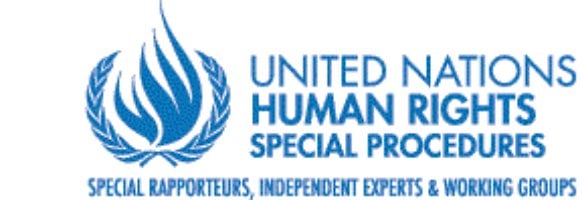COVID-19 could push millions into exploitation or
slavery, UN expert warns
GENEVA (16 September 2020) – COVID-19 risks pushing millions of children, women and men into contemporary forms of slavery and other forms of exploitation unless governments act now to protect them, a UN human rights expert warned today.
“Historical levels of underemployment or unemployment, loss of livelihoods and uncertain economic perspectives are some of the complex consequences of the COVID-19 pandemic which have hit the most vulnerable hardest,” said Tomoya Obokata, special rapporteur on contemporary forms of slavery, as he presented his report to the 45th session of the Human Rights Council.
“Combined with weak safety nets and a dismantling of labour rights and social protection regulations in some countries, there is an acute risk that the poorest will be pushed into bonded labour, forced labour or other contemporary forms of slavery for survival, he said.
“States may see dismantling labour rights as a quick fix in light of increasing pressure on businesses as a consequence of the global economic recession,” Obokata said. “In the long term, however, these same States will pay a high price for removing people’s protection and dignity at work.”
He particularly called for accountability for businesses that exploit vulnerable workers producing, processing and providing medicine, medical equipment or Personal Protective Equipment (PPE) during the pandemic.
“Labour rights must be upheld and social protection ensured across all economic sectors,” he said. “States must ensure that in the context of the COVID-19 pandemic, no one is left behind and pushed into slavery-like practices.”
ENDS
Mr. Tomoya OBOKATA (Japan) is the Special Rapporteur on contemporary forms of slavery, including its causes and consequences. He is a scholar of international law and human rights, specialising in transnational organised crime, human trafficking and modern slavery. He initiated his term as the Special Rapporteur on contemporary forms of slavery, including its causes and consequences in May 2020. He currently serves as Professor of International Law and Human Rights at Keele University, and previously taught at Queen’s University Belfast and Dundee University (all in the United Kingdom Great Britain and Northern Ireland). He has extensive experience of working on the issues of transnational crime, human trafficking and modern slavery with relevant stakeholders, He has also published widely on the topics mentioned.
The Special Rapporteurs are part of what is known as the Special Procedures of the Human Rights Council. Special Procedures, the largest body of independent experts in the UN Human Rights system, is the general name of the Council’s independent fact-finding and monitoring mechanisms that address either specific country situations or thematic issues in all parts of the world. Special Procedures experts work on a voluntary basis; they are not UN staff and do not receive a salary for their work. They are independent from any government or organization and serve in their individual capacity.

